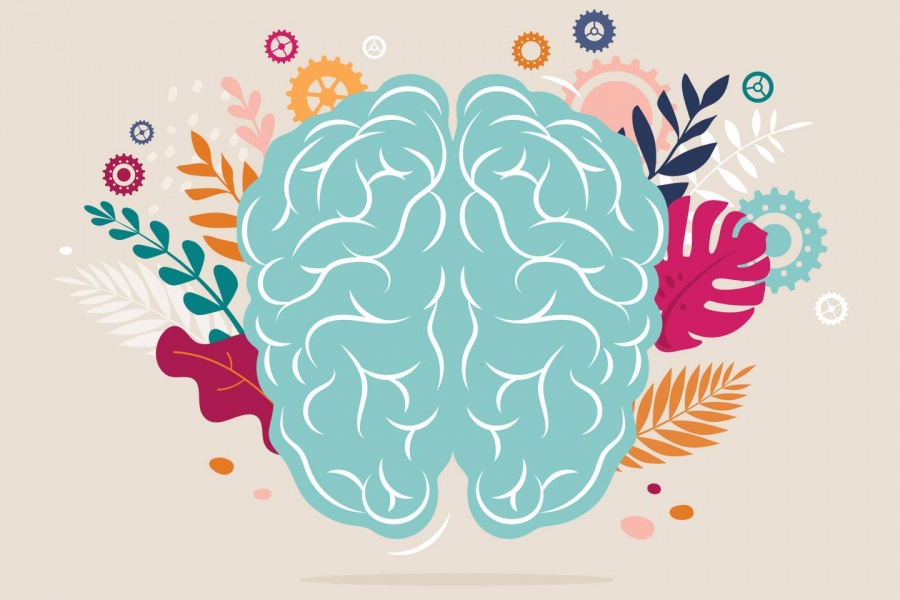Dealing with Mental Health During Isolation
May 13, 2020
The afflictions of coronavirus have been felt in varying degrees by everyone around the world. Most of the population has had to endure a lockdown of some type, social-distancing orders, the loss of jobs, and mental health challenges such as anxiety and depression.
Mental illness has been quite a taboo subject to talk about for a long time, and this quarantine has definitely not made people already suffering from mental illness have an easier time. Hearing news that evokes fear, having a loved one that is dealing with coronavirus or another sickness, dealing with opportunities/events being canceled, and isolation itself can make you feel quite lost and empty. All this built up stress not only causes physical harm that can deteriorate your immune system during this critical time, but negatively affects your mental state as well.
In fact, isolation, and the environment you are isolated in has a huge part to play with mental health as well. A student that lives in a toxic household may often look to school as an escape, but because of isolation, they are now in that toxic household constantly. Also, humans are naturally sociable creatures and tend to thrive when we’re around those we love and admire.
What are the ways you can cope with this anxiety, frustration, anger, or sadness?
Take a break-One of the ways you can help cope is by taking a break. Not a break where you are scrolling through your phone and watching TV. Take a break from all the news, all the coronavirus related articles, and focus on a singular task that you thoroughly enjoy. Perhaps you can read a book, draw a self-portrait, go on a walk, or make a bucket-list. Just try to relax, and take a break from social media. Try to be aware, but not anxious.
Journal/Maintaining A Routine-Journaling or keeping a diary has many benefits to your health. Writing out negative thoughts can encourage self-reflection and is said to improve mood as well. It can help you maintain a routine, which can be important in times when it seems you have no control. Whether you use a writing prompt or just write about your day, any type of journaling can be an effective way to help manage stress and anxiety.
Physical Health-Not many people realize the benefits of exercise and a healthy diet. During quarantine, it can be exceptionally hard to work out and eat healthy with no gyms available and food often being an emotional escape from the chaos. If you are able to, body workouts are an awesome way to exercise, and there are multiple videos online that can help accommodate your fitness level. Researchers have shown that 30 minutes of moderate-intensity aerobic activity every day reduces the risk of depression, anxiety, and improves brain activity. Taking a walk, doing 30 minutes of jump roping, or going on a bike ride are all ways to achieve your physical activity. A diet that includes fresh vegetables, fruits, and whole grains is shown to increase energy levels and nutrient intake. Our bodies are psycho-somatic, and what you put into your body can definitely affect your mind and mental wellness.
Invest In a Hobby- Investing in a hobby such as playing an instrument, or drawing is a method that is truly beneficial. Not only do you do something that you enjoy, but you are learning and stimulating the mind from such activity.
It is important to note that not everyone can be able to take as much care with their mental health as others, and not all these coping methods will work for some. If you are struggling despite using these coping methods, try to talk to a trusted adult or friend about what other methods you can use.
During these hard and unknown times, we can often feel troubled and stressed, which of all is normal. Knowing how to take care of your mental health is important, whether in or out of quarantine. Although it may be hard, remember that there is still light in the darkness, and hope even amongst the pain. You’re not alone.
National Suicide Prevention Lifeline: 1-800-273-8255 (24/7)
General Crisis Text Line: Text SUPPORT to 741-741
National Alliance on Mental Illness: 1-800-950-6264
Colorado Crisis Services: 1-844-493-8255, Text “TALK” to 38255


Tammy Sloan • May 13, 2020 at 1:37 pm
Well written Chinwe! Great job! Looking forward to seeing you back in the fall!